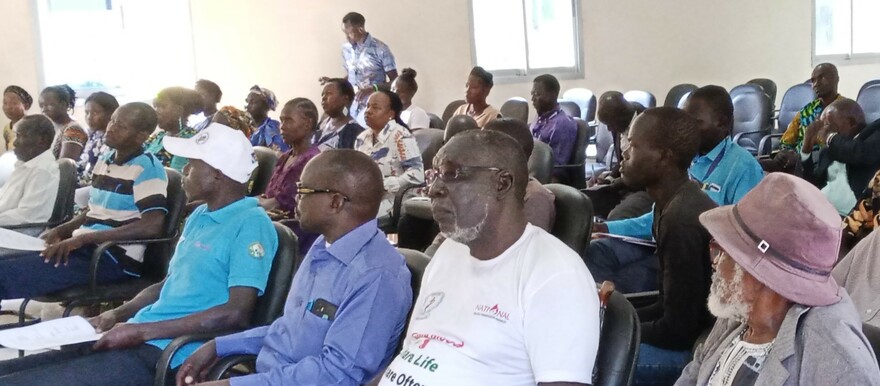At least 61 traditional leaders on Wednesday started a two-day training in human rights, cultural practices, monitoring, and reporting conflict-related violations in Torit, Eastern Equatoria State.
The training organized by UNMISS Human Rights Division focuses on the role of traditional authorities under the Local Government Act, sexual and gender-based violence (SGBV), and conflict-related gender-based violence and drew participants from the counties of Torit, Magwi, Ikotos, and Lafon.
Anthony Nwapa, the head of UNMISS’ Human Rights Division in Torit, said the training is part of nation-building in the interest of South Sudanese.
“We are talking about trying to build institutions, communities, and social cohesion to ensure everything works out for our country. South Sudan is an independent country and it is our responsibility to build it by taking everyone along including children, women, men, the government and everybody has to work together to build a prosperous South Sudan,” he said. “So, this is an interaction for nation-building. It is in the interest of everybody that things work well for South Sudan even with the challenges that we are facing.”
“We should all coordinate together to push South Sudan ahead,” Nwapa added.
He said that conflicts continue in South Sudan because some peoples’ rights are trampled upon.
Meanwhile, Aya Becky, the chairperson of the Human Rights Commission in Eastern Equatoria State, said human rights have been taken out of context and that some rights need to be controlled for public safety.
“Our people now are taking human rights in another way and say they have the right to get intoxicated and sleep by the roadside. This is wrong and you have to have control. There are some rights and some wrong rights,” she explained. “Our country is not stable because we are doing certain things wrong. Some men do not want to go to the garden and say they have a right to stay home because they are men and women should do the work. It is wrong!”
Torit Municipal Council Chief Mathew Oduma Ofoto said human rights are essential and said torture should be prohibited.
“We do not have rights these days and we are saying human rights have to be implemented and should be accorded to everyone,” he said. “Also, torture must be stopped. Even as a chief, I do not torture people because that is a human being and they may not give proper information because of pain.”
For his part, Joseph Odongi, the paramount chief of Ikotos County, said the training will help empower the traditional leaders in how to handle local court proceedings.
“I have learned a lot and this training will help us. I learned how to preserve human rights, the law, and the constitution and about our roles as chiefs,” he said. “We want awareness about human rights in our communities so that the people know about the law and their rights.”
Another chief, Mowo Tom Lokudo of Ramula Payam in Ikotos County, said he learned about the dangers of torture and forced and early marriages.
“When a suspect is arrested, he or she should be brought before the law which will identify the fault,” he said. “As a chief, I will talk to my people and teach them the law and the constitution.”




